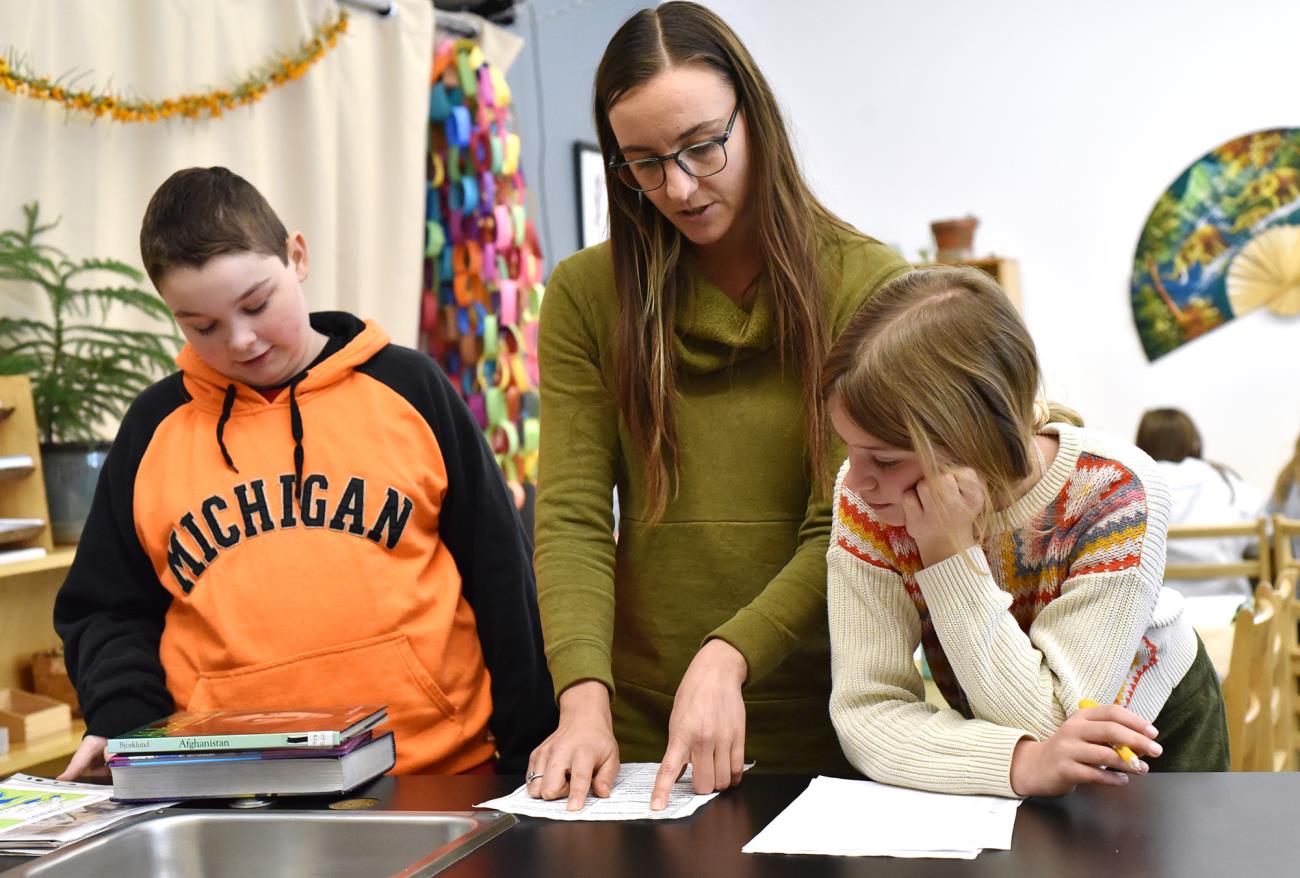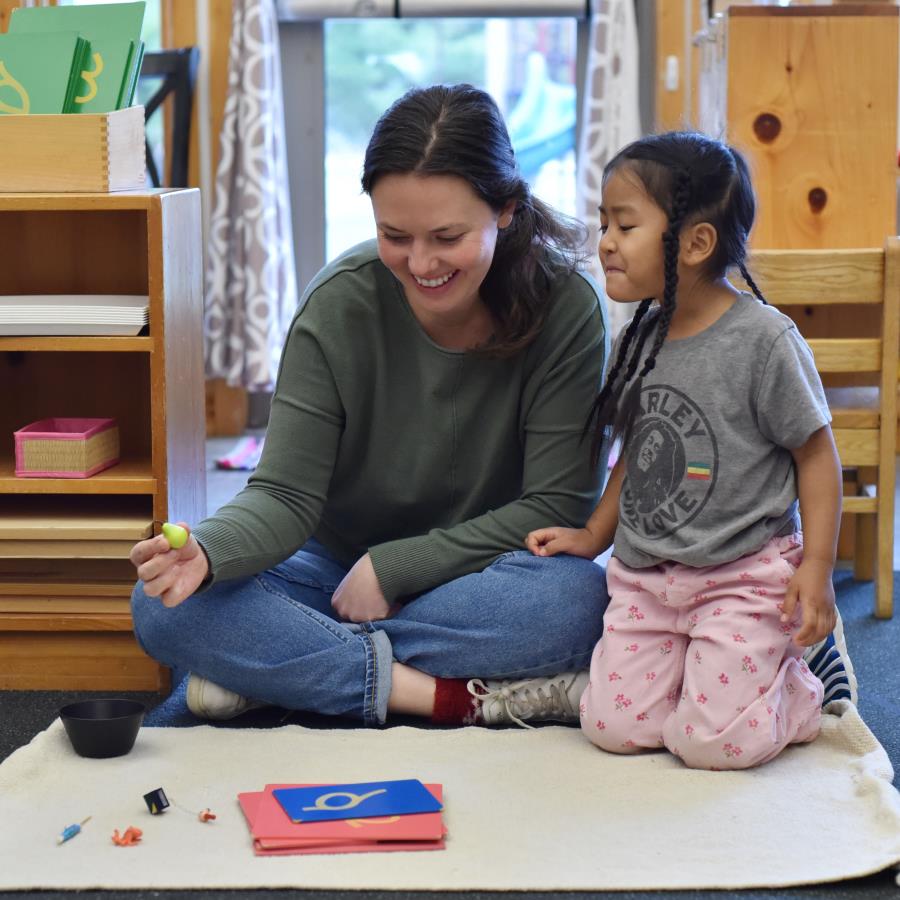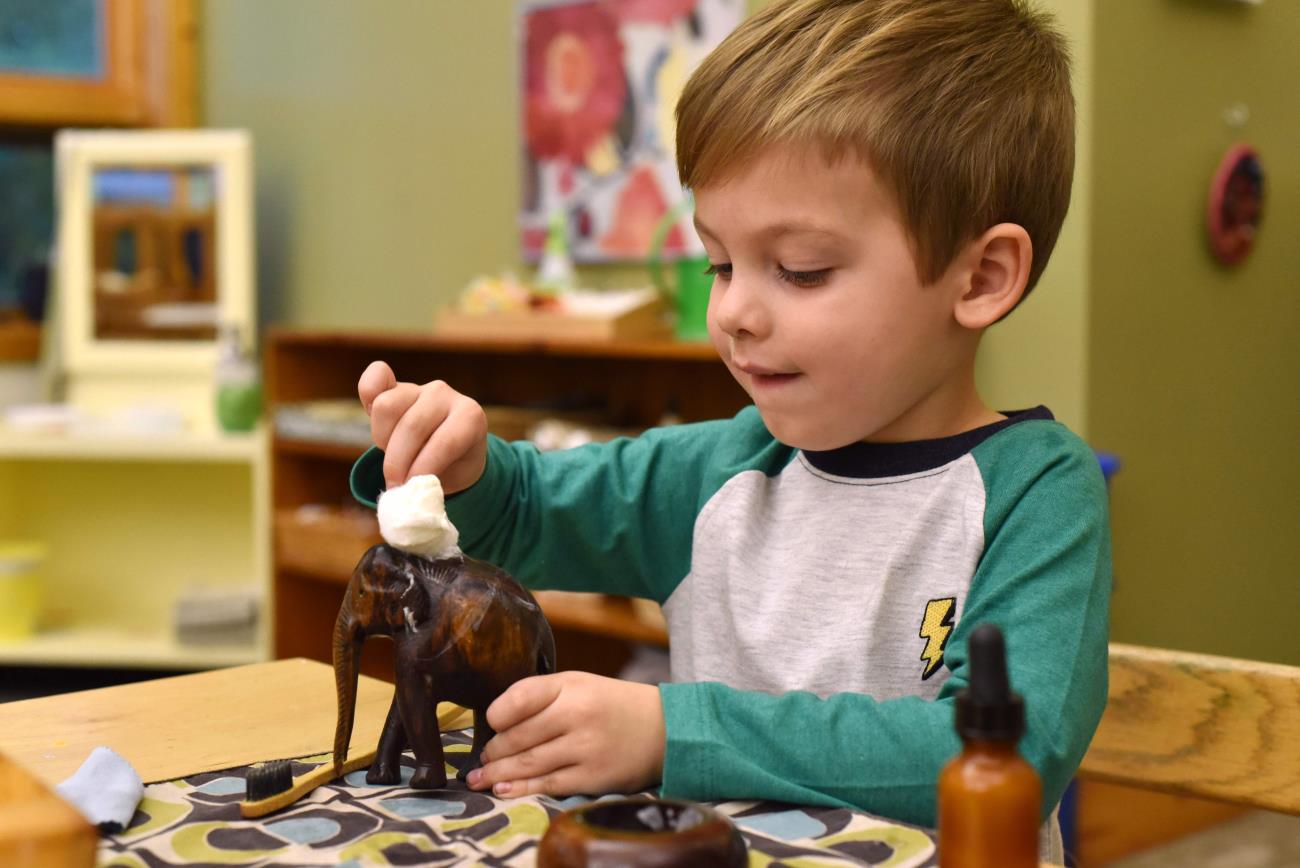When I started my Elementary Montessori training I remember my trainer boldly telling us (maybe even yelling), "You have to be interesting to the children!" She went on to explain that we needed to have our own interests, lives, wonders, activities, and learning pursuits so that we have stories to share with the learners. Naturally, children wonder about the adults in their lives whether it is their teachers, caretakers, parents, aunts, uncles, etc. We are helping children to become life-long learners, and we need to model this ourselves!
Often I ask at my opening meeting about hobbies. I am interested in what the families in my room like to do. Perhaps some of these activities can be shared by the families in the classroom later on as well. Sometimes families have shared that they don’t have personal hobbies anymore. While I’m sure something like reading books, running, or listening to music might have slipped their minds, I want to encourage all of you to consider something you used to do, or aspire to do, and commit to giving it more of your time. Of course, depending on your children’s ages this may be more or less accessible to you.
For example, this week with the fresh snow I mentioned to my learners, who were so eager to play on recess, that I was also looking forward to the snow because I like to skijor with my dog Rue. Of course, their faces lit up imagining the dog they love pulling me on skis. This opened their imagination, made them wonder, and helped them get to know me a bit more.
Being interesting was just another way to say that we needed to have our own interests. This is as much for our own mental health as it is for our relationships with the children. In training, they call this "the preparation of the adult." Dr. Montessori wrote about how adults must be calm, peaceful, engaging, and interesting. She talked about how we need to be prepared – physically, intellectually, and spiritually. We need to take care of our bodies, minds, and spirits. Not only do our interests inspire what we teach children, but they also help them get to know us as humans and help the children think about what they are interested in.
I suppose I am writing to encourage you to be life-long learners alongside your children and to take care of yourselves physically, intellectually, and spiritually.
I remember the very first time I stepped into a Montessori Environment. I was touring Intercultural Montessori in Oak Park, IL. I was five months pregnant. The sunlight poured into the East windows, it glistened through plants and the fish tank. Children were walking, playing/working, and speaking Mandarin. They were purposeful and full of concentration. I was like a moth to a flame, I had to know more. I began to read or listen to all of Dr. Montessori's books that I could get my hands on- Education for Peace, The Secret of Childhood, and The Absorbent Mind. I absorbed it all like a sponge.
The most important piece that stood out to me was not only how to observe the children growing and developing, but also asking ourselves the question, "How can I grow too?" "How can I prepare myself spiritually, for the massive undertaking of raising and educating the next generation to inhabit the Earth?" "How can I be a prepared parent?"
After my life epiphany, I left my job as a manager at an International PR company in Chicago and began working in the kitchen at Guidepost Montessori. My beginnings were humble. Having a college degree and private education my whole life, I was told, "You can't be a teacher–they don't make enough money." While this is true, I was fortunate enough to be able to follow my calling, with the financial and emotional support of my husband, Matt. After two years doing dishes, substituting, and working my way up as the "Friends Club Director" and assistant, Matt and I decided it was time to leave the big city and move to a place that reflected our values.
Moving was a path with peaks and valleys, but somehow we found our way to this precious nook, here in Traverse City. My most recent career ventures have been becoming an AMI certified assistant for the Primary and Elementary ages. I have humbly turned down opportunities to become a lead guide because, as an assistant, I can show up every day for these children with a clear head and a clear inbox. Their passions and emotions are my compass and determine my success.
Through the assistant programs, I have learned the essential role of the support adult in the classroom. It is often backbreaking, but always fulfilling. We prepare the environment, repair materials, sweep, dust, mop, sanitize, vacuum, change wet clothes, protect the lessons, and prepare snacks, but we are also the ones the other 24 children in the room turn to when the guide is otherwise engaged. We are the huggers, the band-aid providers, the watchers, and the "guardian angels of concentration." We do this job because we love the children. Parents, the state, academic achievement, and social expectations are not necessarily our number one. Our main focus is the children and their love of being at The Children's House.
I highly encourage all to take an assistant training course, even parents. Not only does it teach you how to be an assistant, but it also inspires you personally to show up for these young humans as best you can.
Being an educator for the past 27 years at The Children's House has taught me a lot about children, parents, and the influence of our changing world on education. First, I want to reflect on the positive changes I have witnessed. Parents are much more involved in their child's education. They are taking more of a stand in what they want for their child educationally. There are more choices out there and parents want to give their child what is best to serve them as a whole. Secondly, children seem to know more about the world around them globally. They have a desire to preserve what will be their world in the future. Not only in the simple ways of recognizing the preservation of our water in their daily lives but also in ways that will affect the earth as a whole. Children have also become much more aware of the choices available for their future. They have dreams for themselves and know there are no limits to what they want to be. The opportunities that await them are limitless. They are also more in tune with their rights and strive to fight for equality and fairness to protect themselves and others around them.
With the changes I have witnessed in these years, I also feel the need to share some negative developments that directly affect many parents these days. Many parents are afraid to say “no” to their children and do not allow them to work through challenging moments. Some parents have a hard time watching their children be sad or struggle. As parents, we need to set limits, be consistent, and follow through. I want to stress to you the importance of allowing your child to struggle through these challenging times. Young children know that they don't know everything about the world or how to take care of themselves, but they believe that you do. Being assertive will reassure them that you do, and will make them feel safe. Not setting boundaries can lead to an unhappy child who doesn't know how to cope with difficult feelings which is an essential life skill. By setting limits on what they can or cannot do you are giving your child a chance to practice managing their emotions. Let your child make mistakes and allow them to work through hard moments. This is important for them to gain knowledge, get through difficult moments in their life, and feel more confident. Teach them to be strong and to become problem solvers. But just like failure, embracing uncomfortable moments can boost mental strength.
Another important point I want to touch on is the effect technology has on our children. I have watched children lose interest in school, struggle with focusing on school academics, give up on hard things too quickly and as they get older are challenged with developing social skills in their relationships. The CDC (Center for Disease Control and Prevention) advises parents to not give any screen time to children under the age of two. The CDC asks parents to remove screens from a child’s bedroom and limit screen time to 1-2 hours daily for children between the ages of 8 and 14. Dr. Maria Montessori believed that our intellect and knowledge of the world have their beginnings in the senses. As human beings we are all sensory-absorbing our knowledge about the world through seeing, hearing, touching, smelling, and tasting around us. As technology is important for inquiring information about the world, let this be a resource to them when they can make sense of the real world around them first before introducing this as a research source. Encourage them to find this information through reading books or through hands-on experiences. Screens do not ask our children to exert themselves. When your child is asked to use their brain and challenge themselves, it becomes too much work for them and they struggle with focusing.
We live in an increasingly stressful world, which is why it has never been more important to foster emotional and mental resilience in our children. Not only are mentally strong children better prepared to tackle future problems on their own, but studies have found that they're also more likely to be engaged in school and their future jobs. Stimulating the senses helps with a child's creativity and imagination, it allows children to regulate, and develop motor and social skills with peers such as cooperation and turn-taking, and teaches self-expression. Give your children the gift of learning through their senses.
I am grateful to have had these years with all of the students and their families. I have learned so much through all of my experiences. I continue to have passion for my work and the future of our children. It's a wonderful thing to have past students who are now parents in my classroom. It's the beauty of witnessing this full circle of education.
“Education is a natural process carried out by the child and is not acquired by listening to words but by experiences in the environment.” – Dr. Maria Montessori


